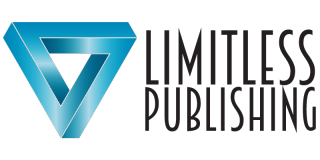Elizabeth Roderick's Blog, page 11
February 14, 2016
ONLY A FEW MORE HOURS TO GET LOVE OR MONEY FOR $0.99!!
That’s right! The Kindle edition of Love or Money is on sale for Valentine’s Day! Pick it up at the sale price, and check out all the other great romance titles from Limitless that are on sale today.BUY NOW!


February 9, 2016
We Need Diverse Books: The Politics of Writing Diversity
Note to readers: I use the term “neurodiverse” in this piece. For those of you unfamiliar with the term, it refers to people generally called “mentally ill”. I prefer “neurodiverse” for reasons I will explain in the article. Thank you for reading.
Writing is a complex art. Words can be interpreted in so many different ways, depending on the background, culture, and experiences of the person interpreting them. We have to be aware of this, especially when we touch on emotional subjects such as diversity. However, if we have political concerns in the forefront of our minds when we write—if we are walking on eggshells trying not to offend anyone—we run the risk of self-censoring, of watering down our characters and stories so that they lose their vibrancy and impact. They become soulless sermons that exist only to convey a moralizing message, and lose the beauty of art. I am going to explore how to find a balance when writing diversity.
I’ll start out by telling you about myself, so you all to know where I’m coming from. My name is Elizabeth Roderick. I’m the author of many diverse books, and am myself a diverse person. I have a novel published, a racially-diverse LGBT romantic thriller titled Love or Money. I also have a series contracted, The Other Place Series, which is about a young woman trying to kick heroin and get her life together, and a young schizophrenic man attempting to make it as an artist. The first two installments of that series are set to release on May 31, 2016 and July 5, 2016.
My personal diversity is neurodiversity. I’m very high-functioning, but I have suffered from bouts of psychosis since I was a teenager, and have had a series of doctors and psychiatrists diagnose me with every letter in the alphabet.
So, now that you have some idea where I’m coming from and what my “expertise” is, let’s get to the subject at hand.
A blog reader recently took issue with my article on Writing Complex and “Mentally Ill” Characters. He is a disability advocate, and had a problem with some of the terminology I used and concepts I presented. It was his first time reading one of my blog posts, and so he lacked context: he didn’t know I was speaking as an insider (which is my bad: I’d gotten so tired of talking about my psychosis etc. in other blog posts, that it seemed like tedious overkill to mention it again).
Furthermore, the reader, as a person with a physical disability, was sensitive to things potentially harmful to disabled people and their cause of equality. I can relate. You can get tetchy about that sort of thing when you’re constantly dealing with the fact society is set up to exclude people like you, and will discriminate and even physically harm you just because of who you are. If you think this is an exaggeration (a viewpoint many seem to hold), ask me (or the disabled guy I was arguing with, or any other diverse person) for personal anecdotes.
I am happy to say that this man and I worked it out, and we ended up Twitter friends. But it made me examine the language we use in speaking about diversity, because of how tricky it can become. In fact, this man, in taking me to task for my language, used language in referring to neurodiverse people that insulted me. The irony made me laugh out loud at the time—which I was glad about, because I needed a laugh.
He insulted me by referring to neurodiverse people as “disabled” and “mentally ill”. I understand that these terms are valid ones in their way, and I will use them on occasion. For instance, I’ll use “disabled” when pulling the ADA card, when the police or business owners harass or otherwise discriminate against my best friend, who is schizophrenic (he’s an incredibly sweet, intelligent guy, but his way of expressing himself can seem rambly and disjointed to people who don’t know him and his mind, and they often get nervous and think he’s dangerous and/or on drugs). In these cases, I’ll bring up the Americans with Disabilities Act and remind them my friend is part of a protected class of people, and they could be liable to penalties and other action if they discriminate against him.
Despite occasionally making good use of the term, however, neither I nor my best friend, nor any of my other neurodiverse friends or family, are mentally disabled, in my opinion. We definitely have our struggles; my best friend is on SSI for his schizophrenia, and I surely could meet the legal criteria as well if I needed to, though I definitely have an easier time in a traditional work environment than him. But I feel the disability is more society’s than ours, because all the neurodiverse people I know are incredibly productive in the right environment. (For a further exploration of this difficult topic, you can read my piece On Madness and the Nature of Reality).
At any rate, if you call me or my BFF disabled, we will take offense.
I also use “mentally ill” on occasion, because most people don’t know what “neurodiverse” means, but I feel it’s a misleading term to be used in general. Sure, when I’m in the midst of a psychotic break or in a deep depression, I’m certainly ill, the way my body is ill when I have the flu. The rest of the time, I’m not. I may be, as a lot of people behind my back (or occasionally to my face) have said, “a little bit off”, or “eccentric”, but that’s not a frigging illness, people. We weirdos are what make life interesting.
Notice I used the term “weirdos”. This was one of the terms the blog reader took offense to: I used the term “weird” in referring to my complex and neurodiverse characters. I used the word fairly unthinkingly it’s true. That’s partially because I was raised thinking “weird” was a compliment, rather than an insult: it’s part of my culture. I like being called “weird” instead of “off”, “mentally ill” or even “neurodiverse”. I also used it because, in context, I wasn’t referring just to neurodiverse characters, but also “complex” ones, so I used a catch-all term I felt was aptly descriptive.
For the reader, though, the term wasn’t apt; he was reading it as a physically disabled person, and he feels a kinship with all those he considers disabled, which for him includes the neurodiverse. I can well imagine why the reader doesn’t want to be called “weird” for using crutches or a wheelchair, especially because he hails from a different country where the term doesn’t carry the same colors and connotations that it does for me—a grunge-era girl from Seattle (I want to add here, for illumination, that the actual DSM diagnosis for Autism, and for other so-called mental disorders, contains the word “odd”, referring to “odd behavior”; for me, “weird” and “odd” are interchangeable, but “weird” is more common in my local vernacular. There’s no better word I could have used without sounding contrived, formal, or self-censoring).
So, what is the answer? Should I have changed my voice and not used the term “weird”? Or should I have used it along with a convoluted caveat, thus destroying the flow of the piece? Well, in this case, I kept the term, but added a caveat at the beginning of the post to give readers context about me.
When we are writing stories, however, we don’t generally have this option; most readers aren’t going to plunge into the story knowing the writer’s background and beliefs, and so might misinterpret our narrative as being ignorance, bigotry, or an outsider’s point of view.
Before I get to how I deal with this problem in fiction writing, I’ll talk about another way we can touch off political angst in writing about diversity: how we present concepts relating to diverse people.
Another thing my blog reader took issue with was the fact I said you could make readers relate to your complex and neurodiverse characters by showing they had a special skill. In my reader’s mind, this technique reinforces the stereotype of the “magical autistic person”.
Autism is another form of neurodiversity that I have some personal experience with, and I completely agree with my reader that it’s incredibly aggravating to pick up a book that touts diversity in the form of an autistic character, only to find that character is a clone of Rain Man. My problem isn’t with the fact that those characters have a special talent, however; my problem is with the lack of insight and creativity on the authors’ part, which in turn reinforces tired stereotypes.
A large number of my neurodiverse friends and family have extraordinary talents, though. I, myself, while I won’t claim any measure of talent, was able to write thirteen novels in two years during an episode of mania, during which I needed very little sleep and was able to focus on writing to the exclusion of pretty much anything else. I’m told that this is part of my “illness”, but to me it’s just the way I am, and it’s something I’m actually proud of. So I don’t want to censor myself from writing about neurodiverse characters with special talents: I feel like talents are something we should be proud of. Neurodiverse people get so little respect from society in general, why should I be shy of writing about one of the things some of us are respected for? And, frankly, why would I write about any character, diverse or not, who is boring and without any talent? (I shouldn’t say that. Great books are written about “boring” people).
My reader did make me second-guess myself, though. I don’t want to reinforce tired or unfounded stereotypes. In his words, he thought my piece didn’t “anticipate how clichéd a view of disability normie [this is how he refers to non-disabled, neurotypical people] writers have, how they’ll view what you wrote through misconceptions.” It made me take a second look at the schizophrenic main character in my Other Place series, and think about how people will view him. And this is something we should always do with our diverse characters, at least after we’ve written their stories: do a bit of second-guessing.
My schizophrenic character, Justin, is an incredibly talented painter, and The Other Place Series are magical realism books. Justin’s artistic career takes off in a way artistic careers very rarely do in real life: very, very quickly. Also, his connection with one of the other characters is close almost to the point of telepathy at times. I try to show the reader in subtle ways that this is intentional “magical realism” hyperbole (an accentuation of the bizarre things that happen in real life, without reaching the level of fantasy), but such things are notoriously misinterpreted by readers. People could definitely interpret the sort of “magical” world in my novels as me trying to say that neurodiverse people are somehow magical.
The reason I wrote the novels this way is twofold: it’s a compelling way of telling the story and presenting the concepts I’m trying to illuminate clearly. If I had written the books in a more realistic manner, readers might see only Justin’s struggles, and none of the beauty, magic, and mystery of his world. Because, and this is the other reason I wrote the books as magical realism: I think a sort of magic actually does exist in the world. I know, I know: I’m prone to psychosis, but that doesn’t automatically mean I’m wrong.
These books were how I processed and explored the fact that I’ve seen some fairly bizarre shit in my life, and I believe that, at least in some cases and in some ways, neurodiverse people’s inability to relate to “mainstream” society helps them to see the world more clearly, and to tap into something unexplainable. The psychic/psychotic connection and the blurred line between illusion and reality isn’t a new concept; it’s older than the bible, and it’s shared by a lot of my neurodiverse friends in different ways. This idea has been presented in a trite and flippant manner at times, and very well at others. I think I have a unique perspective, and that’s one of the reasons why I wrote these books; I just have to be sure I handle the subject with enough skill so that I don’t reinforce negative or false assumptions by non-psychotic people.
So. How do I keep readers from misinterpreting what I’m trying to say? The simple answer is, I can’t. No matter how careful you are, you’re always going to have people who don’t “get” what you’re trying to communicate. And the more important your message, the more risk you’ll run of being misinterpreted, and of pissing people off.
That isn’t to say that we should throw all caution to the wind and not be aware of political concerns when we write, but I think having those concerns front-and-center in your writing, and self-censoring, is a huge mistake. I think it can actually be counterproductive, because that sort of writing often isn’t very compelling, and the only people who will read it are other advocates for the diverse community: you’ll be preaching to the choir, which gets you next to nowhere. At the very least, I don’t feel it’s the way I can best get my personal point across. Others will feel differently, and so I’ll leave the other methods to them.
My personal technique is to not self-censor or be concerned with political issues at all during my first draft. Since I’m never sure what my underlying message is going to be until I’m done with the book anyway, it’s not difficult for me. Then, once I know what I’m writing about, I’ll examine not my characters or concepts, but the beliefs and messages presented in the book from many different angles, so I can anticipate people’s arguments and misinterpretations. Then, when I’ve made sure my reasoning is sound, I’ll tackle revisions. I won’t censor the characters or my voice, but I’ll try to make sure my concepts are presented as clearly as possible by subtle tweaking.
I’m proud of my point of view, and I say what I want to say to the best of my ability. The more compelling I can make my characters and stories, I know the more people I’ll be able draw in, and the more likely they’ll be to give me the benefit of the doubt and listen to what I have to say, even if they don’t agree with me in the end. If my opinions and viewpoints are well-reasoned and come from experience, it won’t keep the critics from hounding me, but I’ll be able to answer them with my chin high.
The long and the short of it is, we have to understand our characters and our stories, and we have to show readers their beauty and truth so they understand them, as well. We won’t always be successful, and we will likely endure criticism, but if what we have to say is important enough to us we’ll persevere anyway. That’s pretty much what making art is all about, in the first place.
Note to readers: If you are a non-diverse person thinking about writing from a diverse perspective, you might want to check out my piece Writing What You Don’t Know, or David Gillon’s Piece, Creating a Disabled Fictional Character. Also, if you are writing a book from the point of view of a non-diverse character whose goal is to somehow “save” a diverse character from themselves or their situation, or if the main plot of the book is that non-diverse character’s “coming to terms” with another character’s diversity, I’m going to write a whole different blog post on that, and there are plenty others already written, which you should search for.


*Release Day* The Dangerous Gift By Jane Hunt
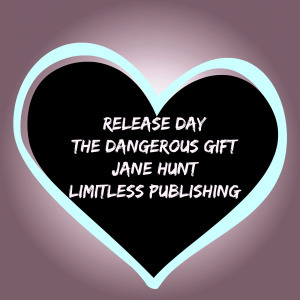

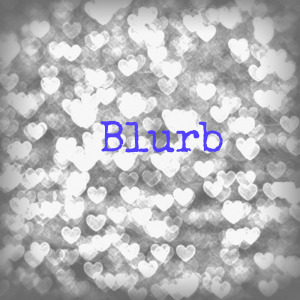
After a tragic plane crash kills Jennie Taylor’s guardians, she returns to her childhood home—and her first love, Jared Stewart.
At just eighteen years old, Jennie had left the Unicorn Ranch in Texas to seek a life in the outside world. But she wasn’t just running toward independence. Heartbroken and confused, Jennie fled her home after Jared harshly rejected her on the eve of her birthday.
Now she must choose between making a new life on the ranch she has grown to love, or returning to her simple but empty life in England. The choice seems obvious at first, but nothing in life is simple…
Jared is forced to share control of his beloved ranch with the woman he wants but can’t have.
When Jennie receives an anonymous note, she goes to Jared for support. But what she finds is more than she was prepared for, driving the two further apart than ever. When an old friend is murdered and suspicious accidents escalate, endangering Jennie’s safety, Jared becomes her reluctant protector.
Jennie knows Jared is hiding something, but does he really want her gone from the ranch? And if so, could he be the one behind the ominous threats?
Determined to prove Jared isn’t involved, Jennie turns detective. Can she succeed in her courageous but reckless investigation…or is the truth a dangerous gift she won’t survive?

Amazon
Amazon UK

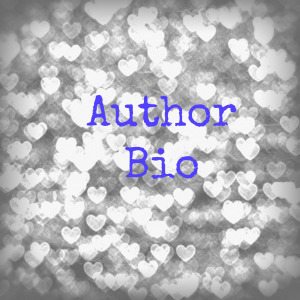

‘Writing has touched my life in every decade. At fifty, I took a risk and made writing my career, fulfilling a lifetime ambition.’
I enjoy writing blogs, book reviews and especially stories. Vivid imagery, atmospheric settings, strong females and sensual males are essential for my stories. Everyday life and ordinary people inspire me. How would someone react, if faced with something extraordinary? A thread of romance runs through my all my books, whether they be suspense, fantasy or historical.
I want to let my readers escape their lives for a while, experience new places, new people and most importantly, new emotional lows and highs My favorite parts of the writing process are; finding a person, event or place that makes me want to write a story about it and the writing itself; when your fingers cannot type fast enough, to transcribe your thoughts.
Family is very important to me. My two children are my greatest achievement to date.
I am an animal welfare supporter and regularly use social media to promote animal welfare issues.


Website Blog Facebook Twitter
Goodreads Pinterest Google+
Linked In Tumblr Wattpad
 Designed by TOJ PUBLISHING SERVICESwww.tojpublishing.com
Designed by TOJ PUBLISHING SERVICESwww.tojpublishing.com


*Release Day* The Dangerous Game By Jane Hunt



After a tragic plane crash kills Jennie Taylor’s guardians, she returns to her childhood home—and her first love, Jared Stewart.
At just eighteen years old, Jennie had left the Unicorn Ranch in Texas to seek a life in the outside world. But she wasn’t just running toward independence. Heartbroken and confused, Jennie fled her home after Jared harshly rejected her on the eve of her birthday.
Now she must choose between making a new life on the ranch she has grown to love, or returning to her simple but empty life in England. The choice seems obvious at first, but nothing in life is simple…
Jared is forced to share control of his beloved ranch with the woman he wants but can’t have.
When Jennie receives an anonymous note, she goes to Jared for support. But what she finds is more than she was prepared for, driving the two further apart than ever. When an old friend is murdered and suspicious accidents escalate, endangering Jennie’s safety, Jared becomes her reluctant protector.
Jennie knows Jared is hiding something, but does he really want her gone from the ranch? And if so, could he be the one behind the ominous threats?
Determined to prove Jared isn’t involved, Jennie turns detective. Can she succeed in her courageous but reckless investigation…or is the truth a dangerous gift she won’t survive?

Amazon
Amazon UK



‘Writing has touched my life in every decade. At fifty, I took a risk and made writing my career, fulfilling a lifetime ambition.’
I enjoy writing blogs, book reviews and especially stories. Vivid imagery, atmospheric settings, strong females and sensual males are essential for my stories. Everyday life and ordinary people inspire me. How would someone react, if faced with something extraordinary? A thread of romance runs through my all my books, whether they be suspense, fantasy or historical.
I want to let my readers escape their lives for a while, experience new places, new people and most importantly, new emotional lows and highs My favorite parts of the writing process are; finding a person, event or place that makes me want to write a story about it and the writing itself; when your fingers cannot type fast enough, to transcribe your thoughts.
Family is very important to me. My two children are my greatest achievement to date.
I am an animal welfare supporter and regularly use social media to promote animal welfare issues.


Website Blog Facebook Twitter
Goodreads Pinterest Google+
Linked In Tumblr Wattpad
 Designed by TOJ PUBLISHING SERVICESwww.tojpublishing.com
Designed by TOJ PUBLISHING SERVICESwww.tojpublishing.com


January 28, 2016
On Madness, and the Nature of Reality for Those “Outside the Circle”
Edited to add: This is a post that I’m putting out there to see how people react. I truly don’t know if I will completely lose people on this – if they’ll think I’m a rambling lunatic – or if most people will be like, “Duh, this is something we all know but never talk about.” Probably both. I would love to hear your comments.
When I was a little girl, I was constantly trying to boss other kids into playing my games. It was shocking they didn’t want to. I’d plop down on the ground, hugging my knees and watching through a haze of tears as they sat in their little circle and braided each other’s hair or played house, wondering: was there something so wrong with me that they’d rather do insufferably boring shit than have sword fights on the back of a Pegasus with me? Or maybe all those other kids were just crazy: maybe they thought playing house was fun, when it obviously wasn’t.
I still have this same debate with myself, nearly every day. Is there something wrong with me, or is it everyone else that’s a nutjob?
I was sixteen when I had what I now know was my first psychotic break, though I’m still not comfortable calling it that. I was over at a friend’s house, at a party, when my world turned upside down almost in an instant.
One of our friends was sitting on the couch talking. To this day, I don’t know what he was actually saying, but what I heard was that he and his friends were guerrilla fighters, living in the hills around town and recruiting new members for their fight against the government’s army of genetically-programmed robot-humans. Apparently this war had been raging around me my whole life, but I hadn’t known it; I had to reach a certain level of consciousness, rise above the façade of mundane daily life (school, work, chores, small talk) in order to see it. The guy went and turned on the radio, tuned it to the rebel fighters’ secret station, and I could hear their communications and calls to action.
It was frightening to be brought so suddenly into this new world, and embarrassing: I didn’t want to admit to my friends that I had just now reached the right level of consciousness to see what was actually going on. I mean, how hadn’t I seen it before? The life I’d been living—the “façade of mundane daily life”—made no sense. Why would anyone bother with school/work/small talk, especially when everyone seemed so pissed off about having to live that way in the first place? It was obvious it was all an act to keep people like me, or people like I HAD been before my enlightenment—stupid, unconscious people—in the dark.
I was so scared that I crawled into my friend Brian’s bed; the poor guy was trying to sleep because he had work the next day. I didn’t talk, but huddled in his arms while he slept, just wanting the comfort of another human body and to know I wasn’t alone.
It was only a couple days before I was able to concede to myself with a fair amount of certainty that there was no government army of genetically-programmed robot-humans. But to this day, part of me continues to wonder if everything I take for granted as real is just a dream within a dream. The world seems pretty damned ridiculous, and it’s hard to believe that people are able to function in it like nothing is the matter, so I figure there must be something going on that I don’t know about.
Each successive bout of psychosis has had similar aspects to that first one, though my most common psychosis is that I’m dead, and that everyone around me is a spirit. Each time I break, I’m absolutely convinced that it’s real. This is even though I know that I’m prone to psychosis. This concept, I’ve found, is something that is pretty impossible to explain to most people.
I have been told all my life that I’m a card-carrying member of the crazy squad, even though I kept my psychotic episodes to myself until quite recently. I guess that’s true, in a way. I’m still that kid sitting outside the circle of other kids, wondering why I don’t live in the same world they do, and can’t play their games correctly. But I actually don’t think their games are any more real than mine; it’s just that they have all the power and make the rules.
Most people take things for granted that I don’t think they should. They see things that I don’t see, things that aren’t there. They have all these social “rules” that I don’t understand at all, but are obvious to them. And they don’t see that this game they’ve created can be really horrible for people outside the circle. A lot of people won’t even concede that there is an “outside the circle”.
Most people have so firm a grasp on reality that they’re actually crazier than I am.
A lot of you are snorting and saying, “Oh, that’s rich coming from Mrs. Genetically-Programmed-Robot-Army,” but it’s true. Let me see if I can convince you of how true it is.
Let’s start with a statement that a large segment of the population believes is a solid fact:
If you break the law, you deserve punishment.
Okay. This is a statement of supposed “fact” that has caused me a huge amount of pain, anguish, and trouble in my life. Most of you reading this probably don’t think much about it, though. The law is there to protect us. Yeah, it may be annoying when you get a fine for getting the wrong building permit, or for parking in a “no parking zone”, but we’re not talking about those little laws. We’re talking about THE LAW. The big Thou Shalt Nots of the American legal system, like Thou Shalt Not Kill and Thou Shalt Not Transport and Deliver Heroin.
As for Thou Shalt Not Kill, I totes believe that one. The only thing that I’m absolutely positive is true is that you should try your best not to hurt others. However, as irrefutably correct as Thou Shalt Not Kill is, even *it* has legal exceptions. In war, for instance, or in self-defense, or capital punishment…or if you’re a cop (let’s not get into that argument now, mmm’kay? But you see what I mean).
So, something we took for granted as absolute truth—that we shouldn’t kill people—is actually not something tangible, but a murky concept that is sometimes difficult to sort out, with everyone disagreeing on what the law should mean and how it should be applied.
I’ll touch on the Thou Shalt Not Transport and Deliver Heroin law, too, because that’s what I was in prison for, all those years ago.
Before I make you stop reading because you’re so disgusted with me, I’d like to make it clear that I’m not in any way shape or form trying to say that heroin is good. I’m just trying to show you why the law doesn’t make sense to me and why it isn’t real; why one thing is legal and another thing isn’t has absolutely no bearing on merit or harmfulness. And I’m trying to make you see how these rules the people in the circle have made end up making life pretty hard for those of us that have a hard time playing their game.
Okay. So, the Thou Shalt Not Deal Heroin law is a law you might think is less complicated to sort out than Thou Shalt Not Kill. You might think, if you deal hard drugs, you should do hard time. Believe me, you don’t need to tell me how much I deserved to be punished for my crime. I’ve heard a million times how I was killing children by filling up their neighborhoods with dangerous poison, etc.
I was a heroin addict at the time I was running drugs. I’d like you all to step back and imagine why that was. Could you see why a person who periodically believed in genetically-programmed robot armies might want to take the edge off now and again? Add that to the fact that I’d just spent several years being physically, mentally, and sexually abused, and you might see why I would gravitate towards something that made me feel good.
I delivered heroin for a lot of complicated reasons, but mostly because I didn’t want to support my habit by prostitution, or by stealing from people. I didn’t want to hurt people. I was just trying to get by from day to day without the pain destroying me.
And if you’re still saying that I ruined a bunch of kids’ lives by giving them access to hard drugs, you should know that most kids who get addicted have problems to begin with. They, like me, are just trying to deal with them by slamming dope. The dope is the symptom, not the problem.
And besides, let’s compare the number of overdose deaths with the number of automobile deaths. The number of people killed by heart disease. The number of people whose lives are ruined by the most horrible drug, alcohol. Yet it’s legal to sell cars, and double cheeseburgers, and booze.
Did I truly deserve to be thrown into a horrible cage and treated like a worthless piece of shit (and to continue to be treated as worthless shit even after I got out, since your rap sheet doesn’t disappear, ever)? Was I doing anything any more wrong than someone who sells booze in their convenience store? Or was I just suffering the very real consequences of being a kid outside of the circle, not playing the game correctly because I didn’t really know how at that point?
Most people see The Law as absolute truth, a thing that shouldn’t be broken, and yet they look at laws in other countries and cultures and call them barbaric. They’re completely unable to see that the people in those other cultures are saying the same thing about their laws.
That’s because laws aren’t absolute truths. Laws are generally based on moral concepts. Moral concepts vary from culture to culture (and person to person). Moral concepts are not real: they are ideas, completely created by humans.
Most of you are comfortable with this fact, actually, that law is an intangible thing created by humans, and you take for granted that having laws is a good and necessary thing. However, when you’re having your face slammed against the pavement with a cop’s gun against your head, or when you are screaming and begging the police to not take your best friend to jail for the supposed “crime” of being schizophrenic, the law seems like a very cruel game that those kids inside the circle are making you play. And it seems Very. Fucking. Real.
We’re all delusional, but those inside the circle in any given culture are able to turn their delusions into reality. Human beings have a tendency to believe things so strongly that they make them real. But if you’re not inside the circle…if you’re not playing the same game as everyone else…then this reality that people have created is not very damned functional. If you don’t believe me, look up the statistics on how many unarmed psychotics are killed by law enforcement, to say nothing of how many people who, for one reason or another, can’t play the game correctly are jailed or harassed or beaten for being different. Because a lot of the time, the people labeled “dangerous” are actually just different than most of those inside the circle. Some of you may not realize this, but when you’re sitting on my side of the circle you do.
I could go on and on and on about the things people inside that circle take for granted as absolute truth, when they’re not, but if I still haven’t convinced you, let’s try this one:
You have to have a job, so you can have a home, pay the bills, and have a good life.
Even something that seems so rooted in our physical reality as this isn’t actually real. Humans have lived as hunter/gatherers for most of our species’ existence, and were quite happy and healthy that way, if anthropologists can be believed. But if I tried to take my kid and live in a tent out in the woods now, hunting deer with a handcrafted bow and arrow, I’d be arrested for vagrancy, trespassing, poaching, and child endangerment. Most of you will say “Yeah, but…” You’ll talk about the dangers of bears, and about property rights. But, if you look at the history of how people have acquired land and money, it seems a lot more hurtful, dangerous, and wrong, than living out in the woods and shooting deer with arrows. And I’m more scared of some of the shit I’ve seen go on in beautiful downtown Shandon than I am of bears.
My point here is that the concept that you have to have a job, etc., isn’t ACTUALLY real, but society has MADE it real. So now, if I want to go homeless because it actually makes more sense to me (and, this will be a surprise to some of you, but to a lot of people it DOES make more sense), then I am outside the law, and subject to very real punishment for my unwillingness or inability to play with the cool kids.
It’s hard, for a lot of reasons, to be the kid on the outside of the circle. It’s lonely out here, and I run afoul of people in so many ways, because I’m reacting to things they can’t see, and vice versa. We live in different worlds, and see different things. This is another concept that I find it’s pretty difficult to explain to kids inside the circle sometimes, and it’s why I write my books, and blog posts like this: I want to find a way to connect our different worlds, so that we can all understand each other.
I’m going to come right out and say something else that most of you won’t understand: I actually don’t mind being the kid outside the circle. I like the way my brain is. I definitely won’t say this every day, especially when I’m in a major depression or when I’m actively psychotic, or when I’m otherwise having a particularly hard time just maintaining my daily hustle, but overall, I wouldn’t trade my brain for anyone’s. The reason for that is that a lot of people don’t seem to know how much of their life is a delusion, and that seems like a shame to me. Because it’s beautiful here, in my world. The things I actually see as real are good things. For instance, the fact that life exists at all; that a series of extremely unlikely events, occurring over an impossible span of time, resulted in human beings who could turn so many of their beliefs into reality; and that those same human beings have the self-awareness to rise above all they’ve created and see that there is an even bigger truth…that’s a pretty awesome thing, actually. And though having that thought foremost in your mind makes it hard to interest yourself in things like corporate culture and making money, I’ve been able to find my niche and I do okay, at least for the moment. I hope all my friends outside the circle are able to do the same, because just because you’re different doesn’t mean there’s no place for you in the world where you can be reasonably happy and functional, it just means that it’s harder to find that place, sometimes.


January 26, 2016
Writing Complex and “Mentally Ill” Characters
*Edited to add: I’m getting pushback for using the word “weird” in here, as in “neurodiverse people are weird” (although that’s not what I said or meant). I’m not going to change that word. I grew up in grunge-era Pacific Northwest, and I take “weird” as a compliment, in the way that Frank Zappa and Monty Python’s Flying Circus are weird. I like being called weird a lot more than I like being told shit like I’m a “different type of normal”. Part of that may be cultural, or semantics, or the fact that I’m not a political-type person: I won’t judge people on their language, or even get angry at people for misunderstanding others, because we all have to work at understanding people different than us. What I will take issue with is people’s treatment of others. So please know that I say “weird” with affection, and because it’s a term that I myself own.
I’m also getting flak for saying you can get readers to identify with your main character by showing they have a special talent, because I guess some people think this reinforces the trope of “magical autistic person”. I too, hate that trope. Just know I don’t mean that. It is true that neurodiverse people often have talent, though, and I don’t think there’s anything wrong with a character that embodies that, just so as you know it’s not some sort of “magic”.
I wrote this article to share my practical experience of writing about the complex and neurodiverse. and share some tips I’ve learned to make people relate to those sorts of characters. Sure, I shouldn’t have to work harder at getting readers to understand characters like this…but the reality is, I do…just like every neruodiverse person has to work harder to be understood by the mainstream of society in real life. My goal has always been to effectively bring readers into my characters’ very different worlds (to “sell those cinnamon rolls” in the inside vernacular of my “weird” friends and me), so that “normal” people can understand a little bit what it’s like. Not all will identify with my stories—not even all neurodiverse people will— because my experiences and beliefs are not the same as all my brothers and sisters. But my point of view and my stories are mine, and I will defend them as gracefully as I can.
That said, if you are not a neurodiverse person who seeks to write about one, make sure you read my piece here so that you can understand what it takes to see from a different point of view than your own.
Good character development is a skill. You have to bring the reader into a character’s day and life— in the correct place, I might add—and let the reader get to know the person through their dialogue and actions as the plot unfolds around them. It’s an intricate process, and difficult to do really well.
Character development is trickier when you’re dealing with complex personalities: characters who act and feel in ways that readers might not expect, and that might contradict how they’ve acted and felt in similar situations earlier in the plot.
A huge percentage of my characters—often my protagonists—are people who could be called “mentally ill” (I really prefer the term “neurodiverse” (though I don’t think that’s quite correct, either), but since no one knows what that means I’ll use more mainstream terms). I’ve learned a few tricks—mostly through trial and error, because I haven’t found much direct advice on this subject—that have helped me to develop my characters in a way that seems to hold readers, and get them to care about them.
The thing to remember about characters—all characters, not just complex or “mentally ill” ones—is that the way they think, act, speak, and feel is actually a big part of the story. If you populate your stories with people who are completely uninteresting and are just wooden vehicles for the plot to ride around in, you might want to spend some more time getting to know them before you write, in my opinion.
With complex characters, their personalities can be an even bigger part of the plot, because the tension created by their thoughts, words, and actions can do more of the heavy lifting pacing-wise. Notice I said more of it, not all of it: some people might argue with me here, but I’m a very firm believer that a character’s psychiatric diagnosis or other personality issues shouldn’t be the entirety of the plot. It’s how the person interacts with the outside world and deals with stress that’s interesting. I, personally, like to throw my weird characters into a plot that would be viable even if my characters were more “normal”, though completely character-driven plots, like in my favorite book Confederacy of Dunces, are also excellent.
I digress, as usual.
So. Let’s assume you’re reading this because you have, or are planning to have, a complex or mentally ill character. For advice on getting to know a character who is dealing with a mental illness or other issue you’re not intimately knowledgeable about, you can read my post on Writing What You Don’t Know. Assuming you already have a good feel for your character, let’s discuss how to write a book about them.
The inherent problem with mentally ill protagonists is that readers won’t identify with them. Even if your mentally ill character is the antagonist or a minor character, you’ll have your job developing them, but your job is harder if it’s the main character. That’s because the “crazy” people are usually the bad guys: they’re narcissists, psychopaths, people suffering from addictions and/or delusions that cause them to act in hurtful ways, people with anger problems…they’re inherently unlikable. Yet, we make even our antagonists better when we get to understand why they do the things they do and how they think, and we make not just our literary world but our day-to-day lives better if we recognize that even people with severe mental illnesses are complete, interesting human beings, and they almost always have something likable about them. Non-neurotypical people can make EXCELLENT protagonists; the best, in my opinion, though I may be biased. The trick is getting a reader to see what’s likable about your main character—even though they would normally shy away from associating with someone like them in real life—before they stop reading because they can’t identify.
The first trick that I’ve learned to use is to start the story earlier in the plot than I would if my character were more predictable and traditionally “likable”. With complex characters, it’s difficult to begin the story at or near a point of high action, because readers don’t know your character, so the way the person deals with conflict or stress may not make any sense to them yet. Mentally ill people often don’t react well to conflict and stress and, just like you wouldn’t want to be introduced to a schizophrenic while she’s in the middle of a psychotic break, you’ll find readers might not like your mentally ill protagonists if they don’t get a chance to know them a little before you launch into the action. And, if your readers don’t identify with or care about what happens to your character, they’re not going to keep reading, no matter how great your pacing is.
It can be difficult to maintain enough tension to pique readers’ interest if you can’t get into the action quickly, but that’s where you use your character’s complex and interesting personality to do the heavy lifting. Show how your character sees and interacts with the world differently than most people. Interesting worldviews, habits, and speech patterns can be very compelling to a reader.
Another thing I do to get readers to like my “unlikable” characters is to quickly show them interacting with their environment in a way that shows their humanity, in a way that is traditionally “likable”. For instance, they can say something really funny. They can save a hurt animal. They can display a special and wonderful talent, or show kindness to someone to whom others are unreasonably cruel. It’s strange, but often something like this is all it will take to hook a reader, and they’ll be willing to read on even if your character then immediately does something completely nuts.
One thing I will never do to hook a reader and get them to identify with my protagonist is to use pity. Though this trick does indeed seem to work, at least with some readers, it shows disrespect to your characters and to the real people who are like them. In my experience not very many people want pity from others, and your protagonist should have enough about them to grab a reader’s attention without using pity.
What character development tricks do you use for your complex characters? I’d love some tips myself


Exciting News About The Other Place Series
I have some great news! I have release dates for the first two books in The Other Place Series. The first book, The Hustle, will release on May 31, 2016, and the second book, The Other Place will release on July 5!
The Hustle is the story of Liria, who is nineteen, homeless, and addicted to heroin. She’s determined to not end up dead like her mother, but every time she tries to get her life together it falls apart again.
She gets clean and lands a job in a Vegas nightclub, where she meets Arty, who seems to be the girl of her dreams: beautiful, funny, and rich. But when other nightclub employees start turning up dead – including her best friend – Liria begins to suspect the nightclub might be a front for something more sinister.
Arty tells her that Liria’s life is also in danger, and promises to keep her safe. But she’s acting strangely, and seems to know too much. Is Arty really trying to save her, or is she holding her hostage, using her as a pawn in a game Liria doesn’t understand?
Starting a new life isn’t easy.
The Other Place is about a young man, Justin, who just wants to draw and be left in peace. But when his mother takes up with a man who thinks his schizophrenia can be cured with prayer, he has to get out quick, or risk involuntary commitment in a religious facility.
He runs off to San Francisco, where his artwork attracts the attention of a gallery owner. Justin’s bizarre and beautiful drawings create a stir in the art world; people rave about his genius and flock to see his work. Meanwhile, Justin is homeless, couch surfing and battling his mental illness.
He believes he’s found his salvation in a girl named Liria. He met her a year before in his hometown, and she’s been appearing in his visions ever since. When they find each other in San Francisco, it turns out Liria has been sharing those visions. She leaves her jealous girlfriend in order to be with him, supporting them both on her meagre income.
Then they discover that the gallery owner has been hiding something, and Justin realizes that being a genius can have a downside. Surrounded by people who want to exploit his talent, he must fight not only for his career and his freedom, but perhaps for his life.
I can’t wait for you guys to meet Liria and Justin!


January 25, 2016
Book Review: Harley by Michelle Jo Quinn
I was skeptical that I’d enjoy this book. I’m not a typical romance reader: I don’t mind romance as part of another story, but I like the meat of the plot to be about something else. Being a musician myself, I’m also generally turned off by stories about musicians, because I’m REALLY tired of the “bad boy rocker” trope. I’ve never met a real bad boy rocker in my entire life, and I was born and raised in the music scene.
Harley is more than a steamy romance. It’s a story about three people coming together to be a family.
Cade is a beautiful young woman who gets a job as a security guard, because she has reason to believe the owner of the security company might be her father. She is a strong woman who takes pride in what she does. She seems emotionally unavailable in an outward sense, but I loved the fact that she didn’t see herself that way. She was just a woman being herself, doing what she thought was right.
Jax is a bad boy rocker. He is a little bit arrogant and self-centered, sort of a peacock. But I liked him. He’s not a complex man, but he’s well-developed, and he is a completely believable and realistic character. He has a good heart, and doesn’t mind showing it.
Harley is an eight-year-old girl, Jax’s daughter by a piece-of-work woman. Other reviewers had a problem with the fact that she’s so smart and capable; they say she is not a believable eight-year-old. But I’m constantly surprised by the variety of people that exist in the real world, and I’ve met kids like Harley: intellectually sophisticated, but still emotionally immature. It’s a dangerous combination in real life, and the author has done a good job with her character in my opinion.
Michelle Jo Quinn is a great writer. She has a precise and elegant style. Her sex scenes are masterful, and she does an excellent job of making you swoon. Her characters are good, and I especially appreciated the fact that Jax’s band were a bunch of dorks, because my experience with musicians is that they are pretty much all complete dorks. Add all that to the fact that this book’s pacing was perfect – kept me reading even when I should have been doing something else – and you have a recipe for a great read. I highly recommend this one.


January 20, 2016
Big, BIG News
I have some pretty big news to tell y’all. In fact, it’s big enough news that I’m going to make you suffer through a long blog post about my feelings before I actually tell it.
Those of you who already know this whole story, just skip to the end.
So. About a year and a half ago, I had this character come into my head: a young woman named Liria, who was homeless and addicted to heroin.
I didn’t really want to write about Liria. In my youth, I was also a heroin addict. I worked pretty damn hard to escape that world, and I didn’t really want to plunge myself back into it. But the character wouldn’t leave me alone, so I relented and started writing a book about her.
While I was drafting it, I met this guy in the park. Young guy. Handsome, weird, with a compelling and lyrical way of talking. I ignored the flashing red lights and sirens in my head telling me to get the hell away from this schizophrenic guy, because he was so cool.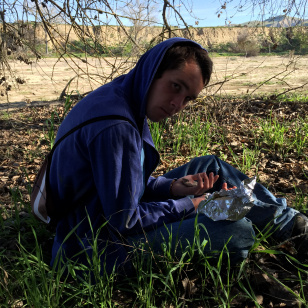
We only spoke for half an hour or so, and I didn’t talk to him again. I didn’t even know his name. But I couldn’t forget about him. I wondered about him enough that he ended up as a fully-fledged character in the book I was writing about the heroin addict. I named him Justin.
Critique groups and beta readers loved Justin, and so did I. So much so that, when I was done with Liria’s book, I started writing Justin’s story.
Writing that book was an intense process, both artistically and emotionally. Bringing people into Justin’s world and making them relate to him wasn’t easy, and I began to truly realize that writing is not just talent and dedication, it’s skill. But that wasn’t the hardest thing. Writing the book put me in an uncomfortable place, even more than Liria’s book had. I spent a lot of my youth worried that I had schizophrenia. I had reason to worry, because I suffered periodic bouts of psychosis—a thing I tried to hide even from people really close to me, and downplay to myself. I tried to tell myself that the psychosis was mostly situational, and that “everyone is crazy”. I tried to forget the wary and uncomfortable looks I’d gotten the few times I tried to talk to people about my experiences.
I was scared to get into Justin’s head. I couldn’t think of much that would be worse than being schizophrenic. Psychosis was horrifying, but I was blessed in the fact that I always had managed to find my way back to the place people call sanity. I didn’t want to think about what it would be like never being sure what was real, and being constantly terrified you’d be pulled into a delusion that would cause you to hurt yourself, or others. I knew just how convincing psychosis could be, how it seemed completely real, and could make you react to things that others couldn’t see or understand.
However, writing Justin’s book, seeing how he interacted with the other characters, made me realize that everyone suffers delusions. There’s a definite difference between what happens when you have a psychotic break and what a neurotypical (i.e., mentally “normal”) person experiences, but it’s true: we’re all crazy. A lot of what any given culture takes for granted as reality and truth isn’t based on tangible fact: it’s a construct. The true difference between these sorts of delusions and what is termed a psychosis is whether or not the belief is shared.
Anyway, enough philosophizing. Back to the story.
Justin’s book has a sequel, and I was almost done drafting it when I realized I wasn’t getting it right. I was lacking insight, and I needed to talk to the schizophrenic kid—the real Justin—again.
I had noticed him around town since I’d spoken to him that day. I’d watched him playing basketball in the park by himself, or jogging in his street clothes. In my head, I called him Justin, and I worried and wondered about him.
So I went down to the park looking for him. He showed up right when I did, and the weird thing is…it seemed like he’d been looking for me, too. Like we were meant to find each other.
The difference between psychosis and belief is whether or not the delusion is shared.
The real Justin’s name is Phoenix, and you can read excerpts from the full story of how he and I became bestest friends, starting here. It’s an incredible tale…harrowing, probably, to those who care about me and mine.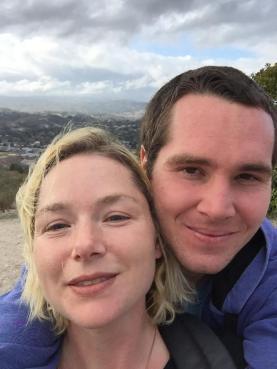
But something good came out of Phoenix’s and my relationship, something beautiful and meaningful: I learned that even people with psychosis are worthwhile. We’re complete human beings—we just have a different way of thinking.
I’m really glad that I ignored the voice in my head that told me to stay away from the scary schizophrenic kid. He’s not scary, and that little voice wasn’t self-preservation: it was prejudice, and shame.
There is another good thing that came out of my relationship with Phoenix, and that’s the books about Justin and Liria. And, I’m really happy to announce that, after a whole bunch of rejection—lots of “you did a great job with the characters, but the plot isn’t what I expected”; and “great writing, but I can’t connect with these characters”; and “I love this, but we already have a book about a schizophrenic” (believe me, publishers: ONE IS NOT ENOUGH. WE NEED DIVERSE BOOKS)…
…after all that, I have signed a contract with Limitless Publishing for this series.
(You’ll have to imagine a hand-waving-and-confetti-throwing celebration gif here, because I freaking hate gifs).
It’s a series of three. The first book is Liria’s story, the second is Justin’s story, and the third is the story of the two of them together. Thank you, Limitless, for taking a risk on this series, because they ARE a risk. Liria’s book is a new adult/adult book, with graphic sex and drug use (those of you who like Love or Money will feel right at home with it, though there’s less emphasis on the romance and erotica). Justin’s book, however, is a young adult book, and the third one…you’ll just have to see. The only thing they have in common is that they’re all contemporary magical realism books. It’s a marketing nightmare, I know, but I told the story the way it needed to be told, and I think Limitless is right that they need to be marketed as a series, and not separately, like I had planned. I think the complete story will appeal to a broad audience, even though it might not be an easily pigeonholed demographic.
I’m really excited to share these books with the world. Excited, and terrified. I know all authors put a lot into their writing, but…I put A LOT into these books. Writing them has turned my world upside down. It caused me to get kicked out of my house and have to live in my car for a while (lots of you who know the whole story will say that I’m simplifying the situation by saying this, but from my point of view, I’m really not).
So, that’s my news. Thank you, all of you, for your support and love. I hope you will enjoy these books. I hope you’ll see the beauty and the truth I tried to put in them, and that you’ll maybe look with different eyes on people like Liria and Justin after you read them.


January 18, 2016
*Cover Reveal* The Dangerous Gift by Jane Hunt
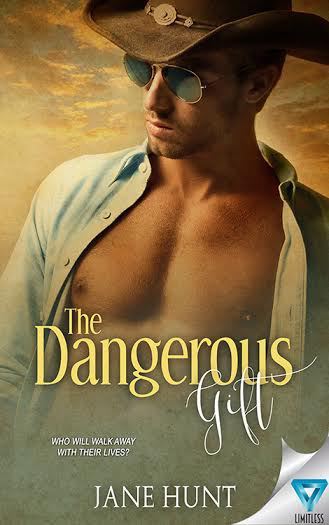
THE DANGEROUS GIFT by Jane Hunt
Release Date: February 9, 2016
COVER DESIGNER: TOJ Publishing Services
= SYNOPSIS =
At just eighteen years old, Jennie had left the Unicorn Ranch
in Texas to seek a life in the outside world. But she wasn’t just running
toward independence. Heartbroken and confused, Jennie fled her home after Jared
harshly rejected her on the eve of her birthday.
Jared
is forced to share control of his beloved ranch with the woman he wants but
can’t have.
Jennie knows Jared is hiding something, but does he really
want her gone from the ranch? And if so, could he be the one behind the ominous
threats?
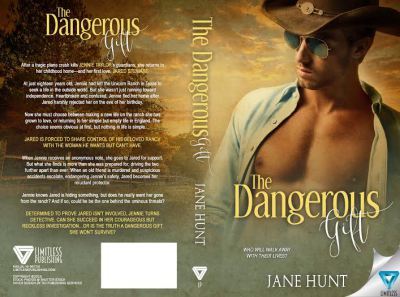
= = JANE HUNT = = 
‘Writing has touched my life in every decade. At fifty, I took a risk and made writing my career, fulfilling a lifetime ambition.’
I enjoy writing blogs, book reviews and especially stories. Vivid imagery, atmospheric settings, strong females and sensual males are essential for my stories. Everyday life and ordinary people inspire me. How would someone react, if faced with something extraordinary? A thread of romance runs through my all my books, whether they be suspense, fantasy or historical.
I want to let my readers escape their lives for a while, experience new places, new people and most importantly, new emotional lows and highs My favorite parts of the writing process are; finding a person, event or place that makes me want to write a story about it and the writing itself; when your fingers cannot type fast enough, to transcribe your thoughts.
Family is very important to me. My two children are my greatest achievement to date.
I am an animal welfare supporter and regularly use social media to promote animal welfare issues.
Limitless Publishing: http://www.limitlesspublishing.net/authors/jane-hunt/
Facebook: https://www.facebook.com/jane.hunt.509511
Twitter: https://twitter.com/Jolliffe03
Website: http://jolliffe01.com/
Blog: http://jolliffe01.com/blog/